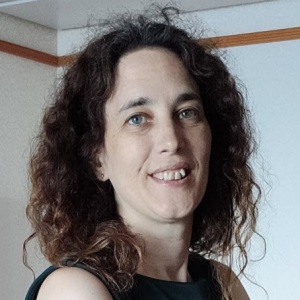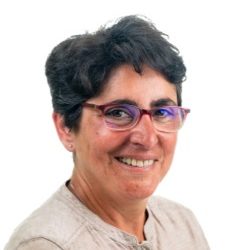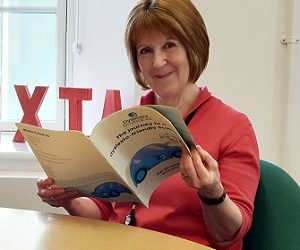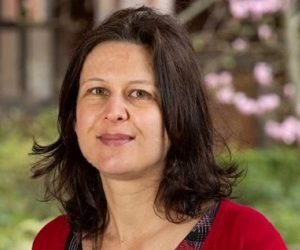Research in my Lab centres around genetic contributions to speech, language and communication. It is estimated that 1 in 10 children in the UK experience communication difficulties but yet we have little understanding of why some children are at higher risk than others. One answer to this may be in their genes.
We look at differences in genetic sequences between individuals affected by speech, language and communication difficulties and try to find changes that might explain their increased risk.
I am particularly interested in the overlaps between communication disorders and neurodevelopment – are there genetic risk factors that put children at risk of multiple disorders? Are the genetic factors that put children at risk in the same genes as genetic variants that contribute to typical ability. Answering these questions would help us to understand the biological and neural factors that contribute to communication disorders and the reasons why some children find these skills difficult to develop.
How did you became interested in learning difficulties?
When I finished my degree, I was lucky enough to get a job in Tony Monaco’s lab in Oxford where a researcher called Simon Fisher had just identified a gene that contributed to speech and language disorders. I thought this work was fascinating and as I read more about it, I really wanted to understand individual differences and how different strengths and weaknesses can affect different people in different ways. When a PhD position in the Monaco lab came up, I jumped at the chance to apply and the rest, as they say, is history!
Can you give us an overview of your work?
I am particularly interested in making links between differences in genetic sequences and differences in speech and language abilities. For most people, we do not think that a genetic mutation (that is a change in the DNA sequence that stops a gene from working) causes language difficulties. Instead, it is a combination of different genetic sequences that form part of typical variation. In some people, the particular combination they inherit means that they find speech and language difficult. I would like to understand
- What these genetic combinations are.
- What they mean for the cell and the brain.
- Why these changes mean that some people find it more difficult to use and understand language.
What are your most recent and exciting results?
When I started my research, we could not sequence all the DNA bases from a single individual (the genome) but now this is a relatively easy thing to do! This means that we can capture all the variation in an individual providing a complete picture of their genetic make up. Using this, we have been able to find genetic variants that are particularly important in risk. Recently, we were able to combine variants across several genes to generate a “risk score” which helps us to start thinking about combinations of genetic variants.
What do you think are the main challenges in this research field?
There are two big challenges
- Language is very complicated!
- Everyone carries millions of differences in their genetic sequence.
The first of these means that it is hard to summarise the difficulties that an individual has and the second means that it is hard to tell which genetic variants might relate to those difficulties.
What are the most pressing research priorities?
Not everyone with early language difficulties goes on to have lifelong difficulties. If we could understand how some children overcome their early difficulties, we could identify tools and strategies that might help others. My research is a very basic and small part of this understanding but it is a step forward.
https://www.brookes.ac.uk/Research/Units/HLS/Groups/Molecular-Genetics-of-Speech-and-Language/ | @diannenewbury




